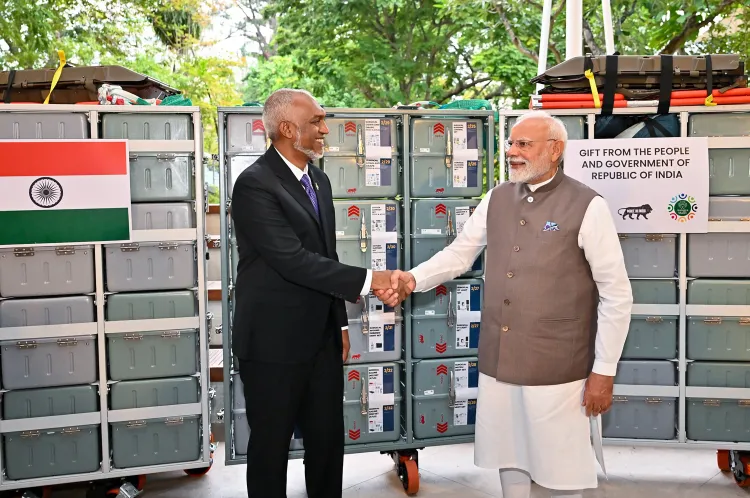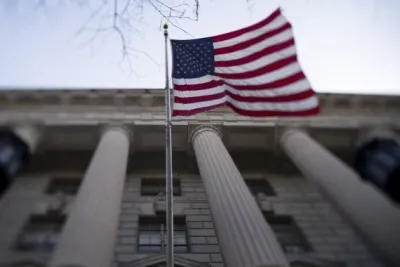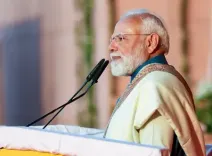Is India's Commitment to Disaster Relief Redefining Global Diplomacy?

Synopsis
Key Takeaways
- India plays a pivotal role in global humanitarian efforts.
- Disaster relief is central to India's foreign policy.
- India's humanitarian assistance reflects its civilizational ethos.
- Operations Karuna and Sadbhav highlight India's rapid response capabilities.
- India's engagement enhances its status as a net security provider.
Male, Oct 25 (NationPress) As India solidifies its position as a significant global player, its commitment to disaster relief and humanitarian assistance stands out as a cornerstone of its foreign policy. This approach is not only quietly impactful but also consistently reliable, founded on the belief that solidarity is the highest form of diplomacy in times of need, as highlighted in a recent report.
As reported by the Maldivian news outlet Truth MV, in a world fraught with uncertainty and upheaval, India's role as a humanitarian first responder provides a principled and pragmatic leadership model, shaped by decades of experience and a vision of shared humanity.
The report notes, "India's foreign policy has seen a significant shift in recent years, moving from a predominantly reactive stance to one that is proactive, compassionate, and strategically engaged. Central to this shift is a powerful yet often understated pillar: humanitarian assistance and disaster relief (HADR). Rather than being a secondary concern, HADR has become fundamental to India’s diplomatic outreach, especially in South Asia, where the nation has established itself as a reliable and preferred first responder in emergencies."
It emphasizes that India’s humanitarian initiatives not only reflect its advancing capabilities but also its civilizational ethos, democratic principles, and the belief in the maxim of 'Vasudhaiva Kutumbakam', which interprets the world as one family.
The report highlights how various humanitarian crises from 2014 to 2025 have bolstered India’s dedication to swift, coordinated, and principled disaster relief efforts across borders. The scale and sophistication of India's humanitarian operations underscore its strategic intent and operational maturity.
In 2023, Operation Karuna provided crucial aid to Myanmar following Cyclone Mocha, with Indian Navy vessels delivering relief supplies to the impacted regions. In 2024, Operation Sadbhav extended support to Nepal and Bangladesh after catastrophic floods, further establishing India’s role as a regional stabilizer.
The deployment of Indian Air Force C-17 Globemaster aircraft to Vietnam and Laos, transporting generators, water purification systems, and hygiene kits, exemplified India’s logistical agility and commitment to transnational solidarity. Similarly, the dispatch of INS Satpura to Yangon, carrying 53 tonnes of relief material valued at $1 million, highlighted India’s maritime capabilities and its readiness to act promptly in humanitarian crises.
The report underscores that whether it’s providing wheat to Afghanistan during food shortages, distributing Covid-19 vaccines and medical supplies across South Asia, or assisting Sri Lanka with fuel and food during its economic turmoil, India has consistently demonstrated an unwavering commitment to humanitarian diplomacy.
This ongoing engagement has elevated India's status from a regional participant to a net security provider. This term, often invoked in strategic discussions, encapsulates India’s capacity to offer stability, support, and reassurance in a region laden with vulnerabilities.










